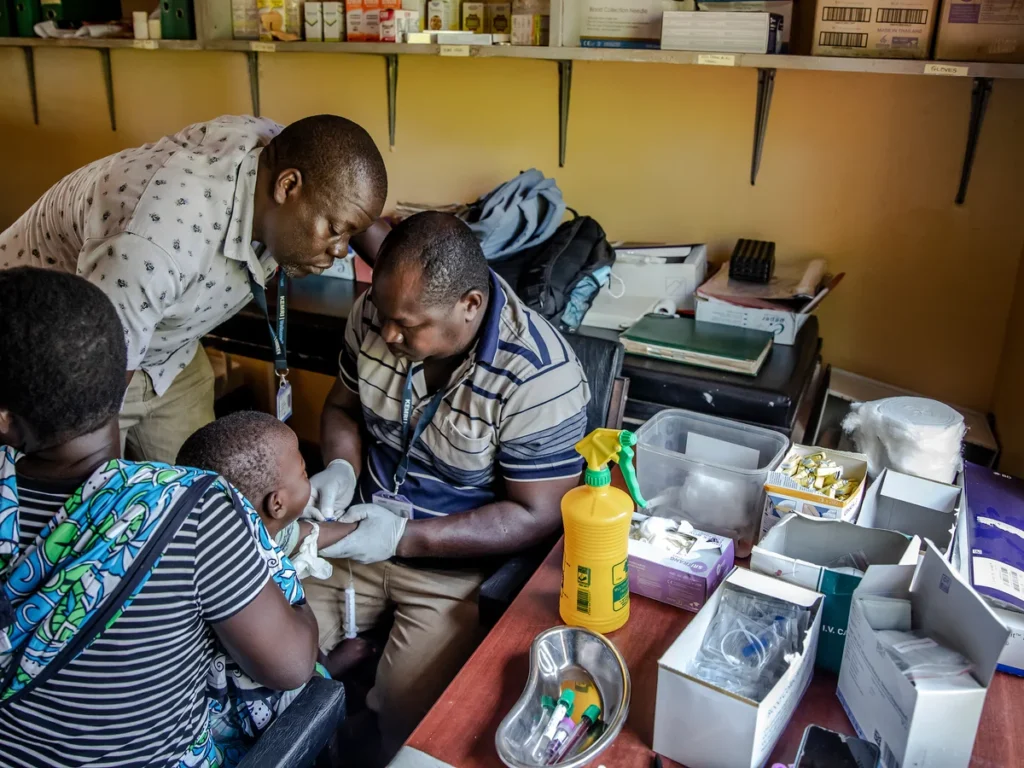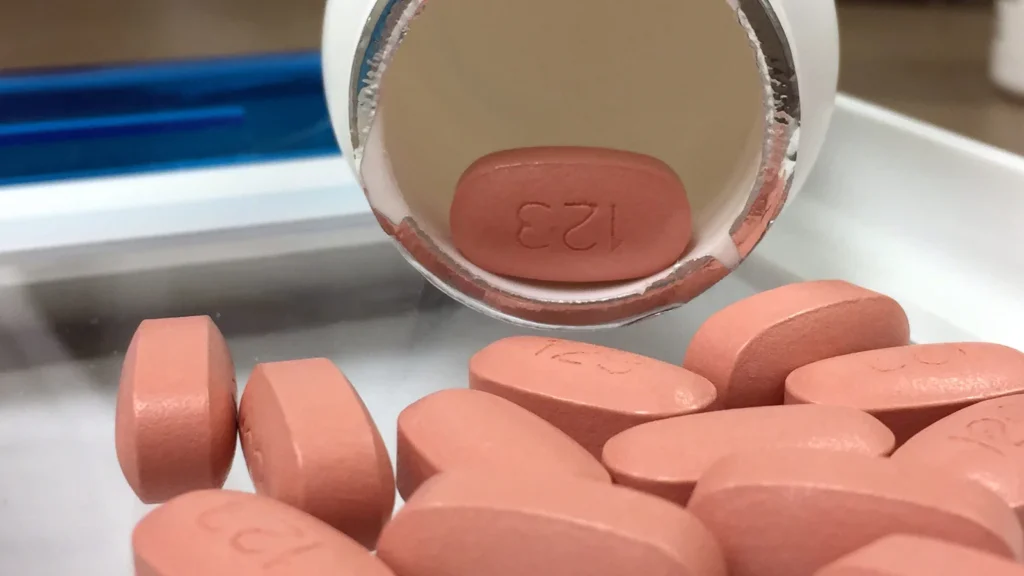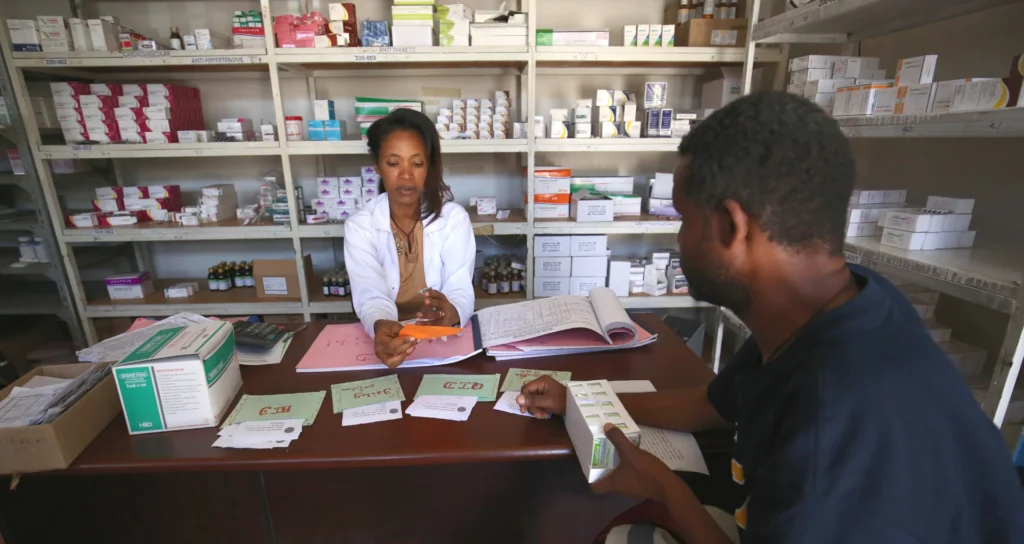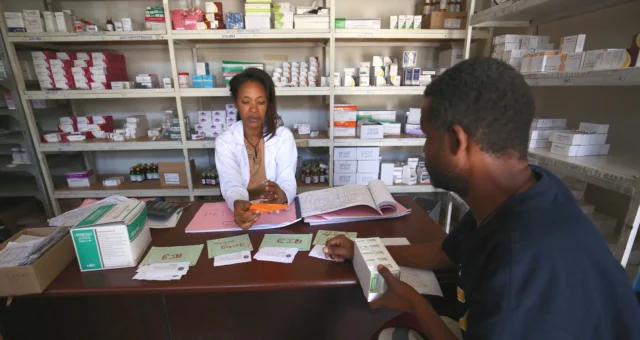In what is being called a transformative turning point for African healthcare, a Nairobi-based pharmaceutical manufacturer has become the first in Africa to produce a World Health Organisation (WHO)–pre‑qualified first-line HIV medicine. The product—TLD, a fixed-dose combination of tenofovir disoproxil fumarate, lamivudine, and dolutegravir—now meets stringent international quality and safety standards. Its availability through the Global Fund marks a new chapter in Africa’s stride towards health sovereignty and supply independence.
Table of Contents

A Milestone for African Health Infrastructure
Until now, Sub‑Saharan Africa—home to approximately 65% of the global HIV burden—has relied almost entirely on imported lifesaving antiretroviral medicines and testing kits. That dependency is now shifting. The WHO pre‑qualification status awarded to Universal Corporation Limited (UCL) represents the first instance that an African‑manufactured TLD has achieved full compliance with international standards, enabling access to global procurement mechanisms.
Under WHO’s Prequalification Programme, manufacturers must consistently meet rigorous benchmarks in quality, safety, and efficacy. UCL’s successful evaluation signals not only technical capability but also a strategic commitment to regional resilience.
From Pre‑Qualification to Global Procurement
Following the WHO’s endorsement, the Global Fund to Fight AIDS, Tuberculosis, and Malaria procured UCL’s in-Africa manufactured TLD for distribution in Mozambique, providing treatment capacity for over 72,000 people living with HIV annually. The Global Fund’s report, available at theglobalfund.org, was featured in allAfrica.com and Health Reporters.
“This historic milestone underscores our dedication to strengthening regional manufacturing and supply security,” said Hui Yang, Global Fund’s Head of Supply Operations. WHO’s Dr. Meg Doherty, Director of Global HIV Programmes, echoed the sentiment, highlighting how this step can advance uninterrupted access for those reliant on regular ARV therapy.
Why It Matters: Health Autonomy & Supply Chain Resilience
For decades, African nations have lacked local production of essential medical products. The reliance on imports made the region vulnerable to supply delays, currency fluctuations, and pandemic-related disruptions. Local production changes that dynamic, enabling faster, more affordable, and more reliable access to treatment.
WHO Director for Regulation and Prequalification, Dr. Rogério Gaspar, described the pre‑qualification of UCL’s TLD as a vital step toward “a more self-reliant, resilient and equitable health system”—asserting that local manufacturing is no longer a luxury but an urgent priority for sustainable healthcare access.
More broadly, researchers and public health advocates welcome the move as aligned with the African Union’s Agenda 2063, which envisions continent-wide health autonomy through building local manufacturing capacity.
Scaling Beyond One Product: Diagnostics and Expanded Production
The milestone doesn’t stop with medicines. WHO has also backed locally produced HIV rapid diagnostic tests (RDTs) through firms like Codix Bio in Nigeria, which received a sublicense to locally manufacture WHO-prequalified test kits developed in partnership with SD Biosensor. This dual approach—focusing on both diagnostics and treatment—strengthens Africa’s capacity to respond swiftly and sustainably to HIV and other health challenges.
But WHO also notes that production alone isn’t enough. Long-term impact requires advanced market commitments, fair procurement policies, and continuous technical support to nurture these emerging manufacturers.

Potential Impacts on Pricing, Access, and Supply Security
Regional production promises to drive down costs and expand access. Analyses suggest that locally manufactured TLD could be priced significantly lower than imported equivalents, enabling governments and NGOs to treat more people within existing budgets. It also eliminates long inbound supply chains, reducing the risk of stockouts and pricing volatility.
Moreover, with WHO and global funders endorsing local producers, African manufacturers are now eligible for inclusion in international tenders, enhancing competition and supply diversity
Implications for Regional Capacity Building and Economic Growth
Experts highlight that such advancements extend beyond immediate health benefits. Strengthening local pharmaceutical capacity fosters job creation, technology transfer, and economic development. Partnerships between WHO, the Global Fund, Unitaid, the African CDC, and investment entities like the IFC (International Finance Corporation) support this trajectory by funding infrastructure, ensuring regulatory alignment, and de‑risking investment in pharmaceutical scale‑up.
Challenges and the Road Ahead
While this achievement is cause for celebration, challenges remain:
- Scaling production capacity to meet broader continental demand.
- Navigating stringent regulatory requirements to maintain WHO compliance.
- Securing long‑term procurement contracts to guarantee sustained demand.
- Replicating the success across other ARV formulations, diagnostics, and related health infrastructure.
WHO officials stress that continued technical support, market shaping interventions, and procurement commitments are required to ensure that local producers thrive, not just survive.
A New Era in HIV Response
This landmark achievement by a Kenya‑based firm, earning the distinction of first African manufacturer of WHO‑pre‑qualified HIV medicine, signifies more than a regulatory milestone—it embodies a meaningful shift toward African health independence.
Locally produced TLD entering global procurement channels through the Global Fund for Mozambique is evidence that African-produced medicines can meet global standards and be part of the global supply chain. With continued momentum, partnership, and policy alignment, this moment could herald the broader transformation of health systems across Africa.

Key Takeaway
- Universal Corporation Limited (Kenya) becomes the first African manufacturer of WHO-prequalified TLD HIV medicine.
- The Global Fund procures the treatment for Mozambique, supplying drugs sufficient for 72,000+ patients yearly.
- WHO prequalification validates local production meeting international quality standards.
- The initiative advances African health self-reliance, reducing dependence on imports.
- Diagnostics and treatments produced locally (e.g. HIV RDTs by Nigerian firms) are part of a broader strategy.
- To sustain progress, fair procurement policies, market support, and infrastructure investment are essential.
Why This News Catches the Eye of Global and African Stakeholders
This development underscores a growing global health narrative: building resilient, scalable healthcare systems based on local production. It offers hope not only for more affordable and reliable access to HIV treatment but also stronger regional capabilities in tackling future health crises, be it pandemics or endemic diseases.
As African nations step into active roles as producers of lifesaving medical tools, their ability to secure supply, control prices, and improve accessibility could reshape pandemic preparedness and routine healthcare delivery across the continent.
Join Our Social Media Channels:
WhatsApp: NaijaEyes
Facebook: NaijaEyes
Twitter: NaijaEyes
Instagram: NaijaEyes
TikTok: NaijaEyes








































